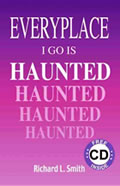by George W. Meek
At last, here is scientific proof that you will live on after the death of your body! Researcher George W. Meek begins by presenting the mountain of logical arguments and observed evidence of life after death, then moves on to experimental, scientific proof. The author's wife died after a long illness, but that was not the end of their relationship. Jeannette not only attended her own funeral, but contact was soon established with her in the spirit world. After contact with other departed souls, we now know what the spirit worlds are like and what goes on there. Recorded here are many conversations with the departed, not only with friends and relatives but with such notables as Abraham Lincoln and Eleanor Roosevelt. Some of these talks with the "dead" involve no visions, no seances with mediums, no random voices from the beyond. Instead, Meek and his fellow investigators developed an electronic device called the Spiricom, which involves a frequency modulation system using supplementary audio tones. Other talks involved a human medium but nevertheless provided convincing information. Evidence of all kinds, including photographs, is introduced to show that, indeed, death is only a new beginning.
About the Author
As a teenager, George Meek began a study of the world's great religions. He sought answers to questions about God, heaven, and hell, the purpose of life and the possibility of life after death. After a career in business, he retired at age 60 to spend the remainder of his life on research into the basic nature of Man. As a result, he was awarded the first honorary Doctor of Humanities degree by the International College of Spiritual and Psychic Sciences. The International Association for New Science granted him its 1991 award for his contribution to new sciences.
Paperback: 311 pages
Publisher: Galde Press; 1st ed edition (May 1, 1999)
ISBN: 1880090856
Dimensions: 1.0 x 5.8 x 8.8 inches



